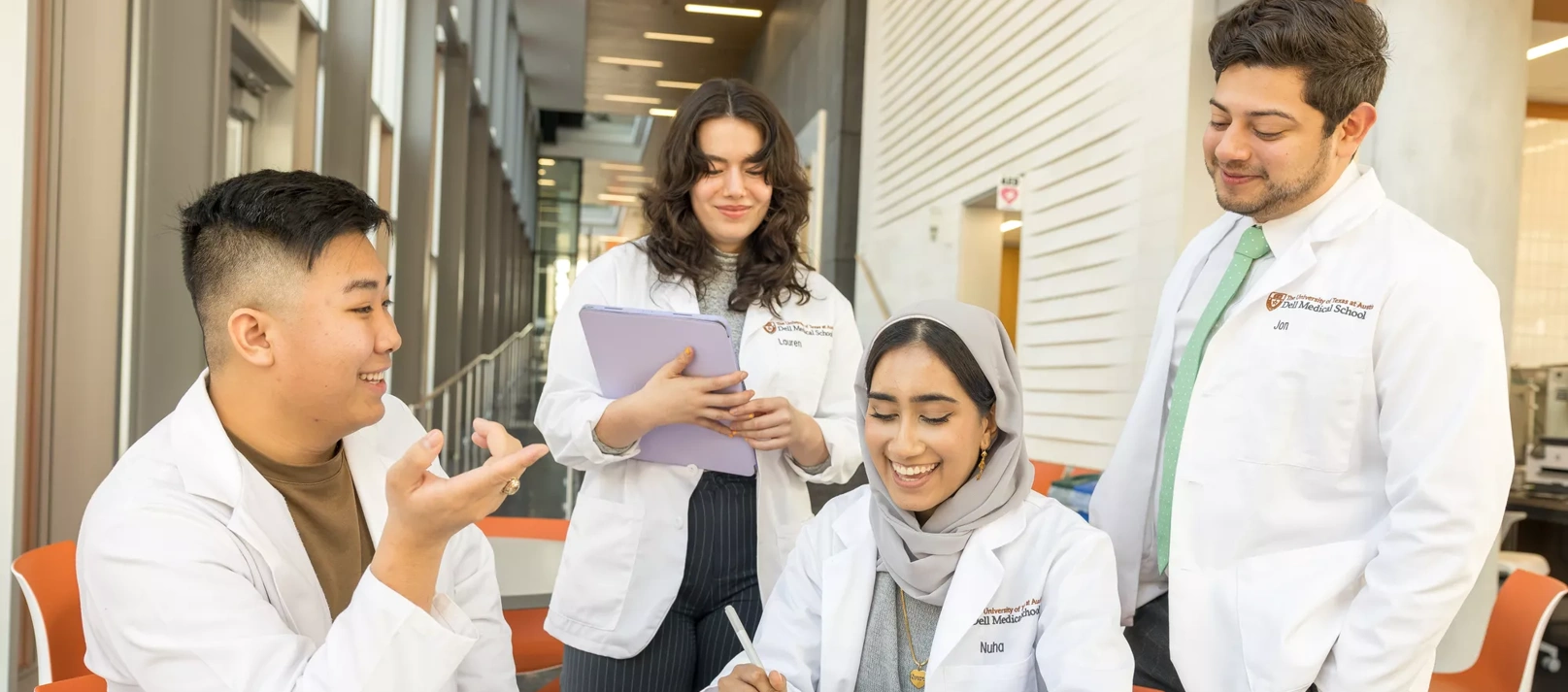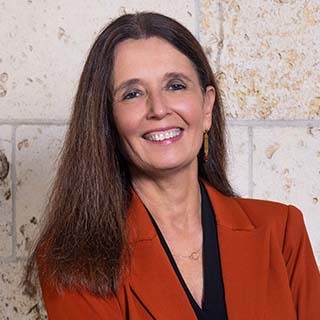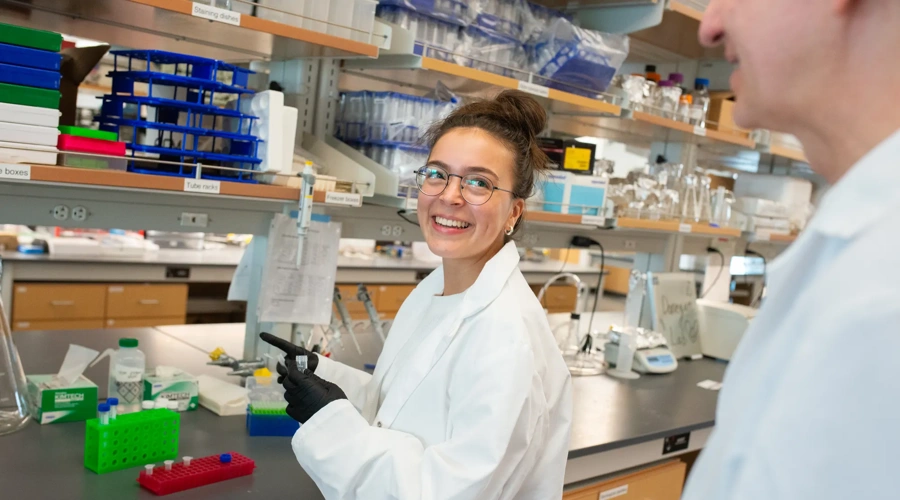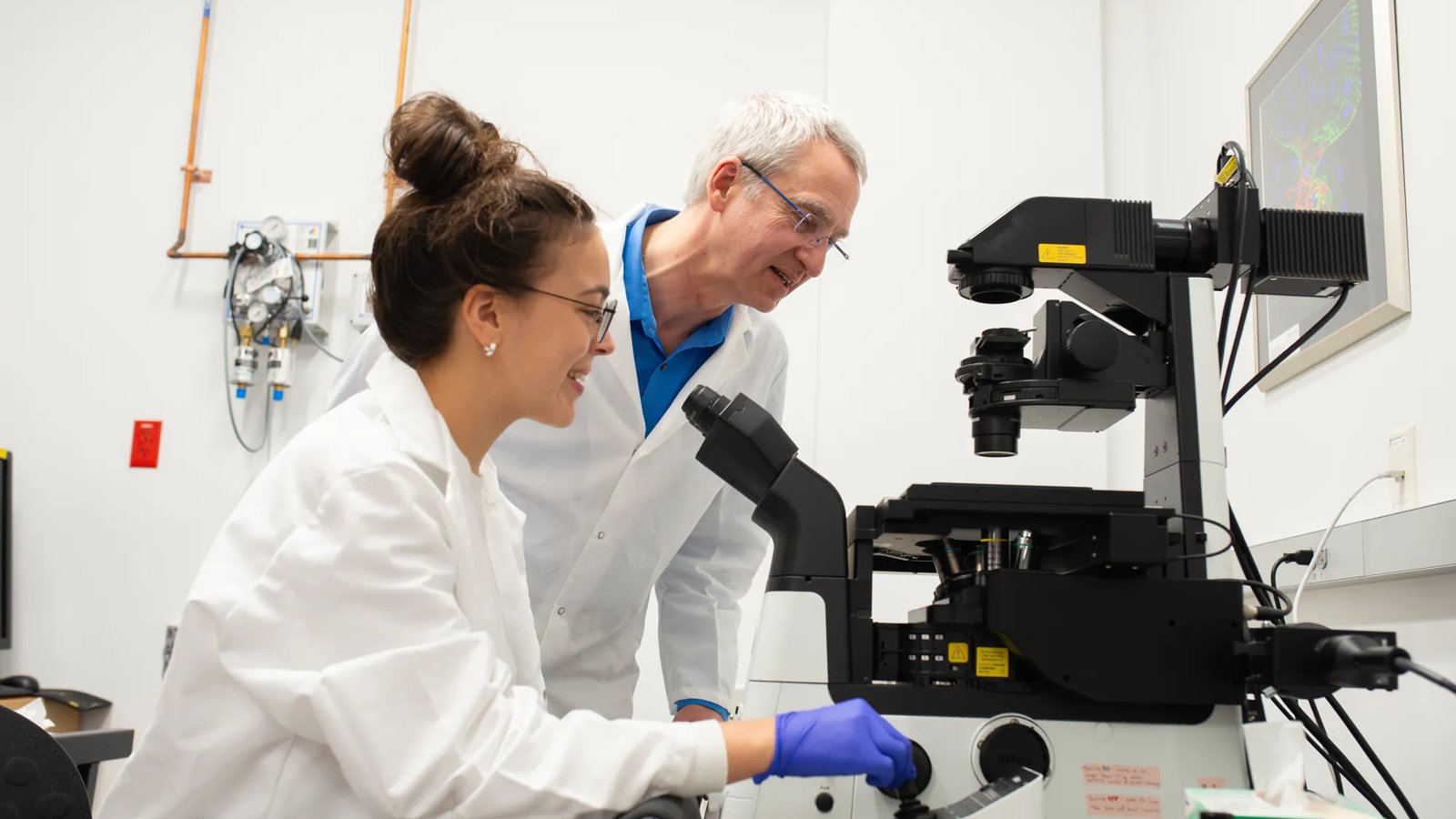Building a Healthier Austin: Innovation Through Collaboration

Overview
Dell Medical School attracts top talent, expands specialty care, and drives research, positioning the city as a leader in life-saving medical advancements. Claudia Lucchinetti, dean of Dell Medical School at UT Austin, explains how Austin is emerging as a health innovation hub.
Austin, Texas, known for its live music, tech scene, and quirky energy, is emerging in a new way: as one of the top life sciences centers in the country. Amid this, there is an incredible opportunity for Austin to become a leader in health innovation and a premier destination for health care, with Dell Medical School at The University of Texas at Austin (Dell Med) serving as the anchor of an integrated academic health system.
These are the opportunities that attracted me here after nearly 30 years spent working as a physician-scientist and educator at Mayo Clinic in Rochester, Minnesota.
Attracting Top Talent & Expanding Specialty Care
Created in 2014, Dell Med was the first new medical school to be built at a top-tier research university in nearly 50 years. Less than a decade later, the school is building on the strong foundation laid by our community physicians and is already demonstrating the enormous value of a vibrant academic health system in Austin. Here are some numbers:
- Dell Med has helped to attract more than 435 new doctors here since 2014 —roughly 10% of physicians in Travis County.
- The number of graduate medical education training programs co-sponsored with Ascension Setonhas more than tripled since 2015. As part of that expansion, there are now 400-plus residents and fellows providing care across Central Texas, including for our most vulnerable communities. That’s a 55% increase in the number of residents since 2015.
- Data show that approximately 45% of the doctors who train in Austin will go on to practice here, and more than 70% will ultimately practice somewhere in Texas. This contribution to the physician workforce is critical to Austin, one of the fastest-growing metropolitan areas in the US, particularly amid a physician shortage expected to grow over the next decade.
We’re also seeing rapid success in expanding access to specialty care in Austin. Among new graduate medical education programs added in recent years are ophthalmology, neurology, gastroenterology and addiction psychiatry, all areas of need identified by Central Health.
Plus, programs like the Texas Center for Pediatric and Congenital Heart Disease — a collaboration of Dell Children’s Medical Center and UT Health Austin (the clinical practice of Dell Med) — have paved the way for multiple milestones and firsts in pediatric and adult care, including the first pediatric heart transplant in Travis County. Today, transplants and other complex pediatric heart surgeries are happening regularly inside our city. That same kind of progress is underway in a wide range of specialty care areas, from adult organ transplants and women’s health to pediatric neurosciences and comprehensive fetal care. The physician leaders and world-class specialists coming to Austin are helping to ensure that Austin patients and families get the care they need right here at home. Most exciting of all, we’re just getting started.
Advancing Health & Health Care Research
Research shows that patients treated at major teaching hospitals have up to 20% greater odds of survival. This is at least in part because academic medicine is the only place where patient care, medical education, and research are truly integrated. And it’s this kind of collaborative culture — one that leverages the unique and diverse expertise of UT experts across disciplines as well as the strengths of our clinical and community partners — that we are working to build.
Today, more than 200 collaborative research teams at The University of Texas at Austin (UT) are working on health research projects, with nearly 100 of those involving medical school researchers. Dell Med faculty are part of teams of engineers, nurses, pharmacists, social workers, computer scientists, and other experts exploring computational precision medicine, novel diagnostics and therapeutics, artificial intelligence and digital health, environmental health, health disparities, and much more. And on the innovation front, more than 140 disclosures for new inventions and technologies — part of the patent process — include Dell Med scientists.
In research, the so-called “bench to bedside” cycle — the time it takes for a discovery in a lab to start directly benefiting patients — is notoriously long. It’s not uncommon for that impact to take more than a decade. But when silos are knocked down and gaps are bridged, impact can happen more quickly, alongside real and meaningful research. A great example is our Livestrong Cancer Institutes’ Program on Cancer Prevention and Control’s novel colorectal cancer screening initiative—undertaken in collaboration with our partners at CommUnityCare Health Centers, the largest federally qualified health center in Central Texas.
With support from the Cancer Prevention and Research Institute of Texas, the program team mailed screening kits directly to homes, doubling the percentage of patients screened for colorectal cancer in the initiative’s first year alone. Six years later, approximately 44% of CommUnityCare patients are up to date on screening, up from 19% before the program. This is meaningful health access made possible by academic medicine, and it is only one example.
Just Getting Started
A driving force for me in my career has always been the patients I’ve lost, like the young mother who died of an aggressive form of multiple sclerosis (MS) just three weeks after she was diagnosed. I decided, in that moment, to dedicate my research to MS, to prevent what happened to her from happening again. We aren’t there yet, but we’re closer. The same is true of our pursuit of health transformation in Austin.
There is so much opportunity ahead to advance health access, equity, quality, and outcomes, particularly for those most in need in our Central Texas communities. As evidence, examples of collaborative impact are all around us. They remind us of how much we can accomplish when we work together, and they are setting the stage for more to come.
I chose Austin for all these reasons, and to be able to make a difference in the lives of every family. We have a unique opportunity — and I couldn’t be more excited to be part of this growing and innovative community.
About the Author
Claudia Lucchinetti is dean of Dell Medical School at The University of Texas at Austin and senior vice president of medical affairs at UT.
In those roles, she oversees Dell Med’s mission-focused work to advance education, research, clinical care and community impact, and leads the university’s comprehensive health care strategy.



